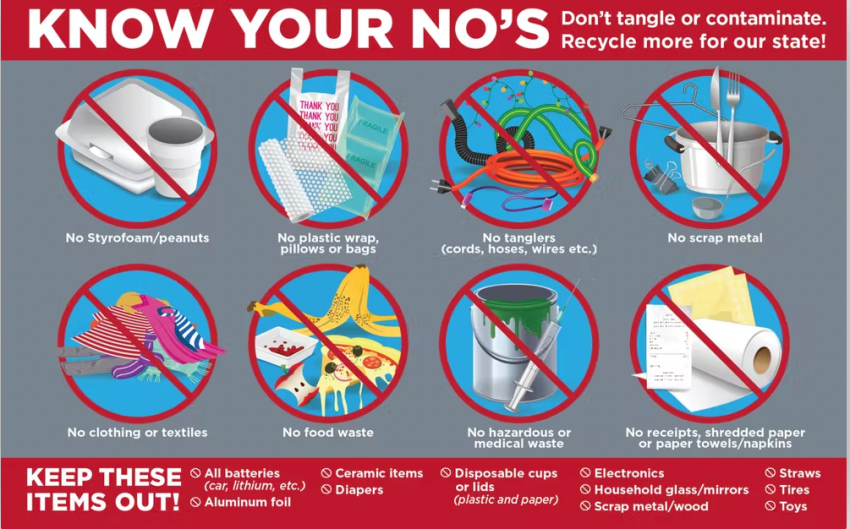Advocates of curbside recycling are trying to get rid of contamination. Specifically, they are trying to combat “wishcycling.” This is a term for families’ tendency to put into the recycling bin such non-recyclable materials as plastic bags, Styrofoam, food waste, and clothing.
Writing on The Conversation website, Jessica Helges and Kate O’Neill observe:
“Contaminating the waste stream with material that is not actually recyclable makes the sorting process more costly because it requires extra labor. Wishcycling also damages sorting systems and equipment and depresses an already fragile trading market.”
Although contamination by non-recyclable materials has always been a problem for curbside recyclers, China’s 2018 decision to drastically reduce its waste imports left many local governments and companies with piles of material they couldn’t get rid of.
Helges and O’Neill say:
“Wishcycling entered public consciousness in 2018 when China launched Operation National Sword, a sweeping set of restrictions on imports of most waste materials from abroad. Over the preceding 20 years, China had purchased millions of tons of scrap metal, paper and plastic from wealthy nations for recycling, giving those countries an easy and cheap option for managing waste materials.”
Now:
“Huge waste management companies and small cities and towns have launched educational campaigns on this issue. Their mantra is “When in doubt, throw it out.” In other words, only place material that truly can be recycled in your bin. This message is hard for many environmentalists to hear, but it cuts costs for recyclers and local governments.”
The image above is a poster from the city of Asheville, N. C., used courtesy of The Conversation.


Given that relatively few things can be economically recycled, isn’t it easier to list what can be included in a recycle bin or bins? In our area of coastal Oregon the list is simple: uncrushed aluminum and other metal cans; plastic bottles if the mouth is smaller than body diameter; clean cardboard. Maybe newspaper, but I haven’t read a physical newspaper in years so I don’t know. Our local waste collector and landfill company can make money only on those few items.
Two or three times a month it seems I read an item about a revolutionary way to recycle all plastics into fuels or something useful. All these inventors seem to be abducted by aliens before they can commercialize their process.
Wallace: It sounds as though coastal Oregon (surprisingly) is acting rationally and therefore not wasting a lot of money. Unfortunately, recycling in much of the country is pushed by single-minded activists. A major part of their message is that nearly everything ought to be recycled to “save the planet.” Landfills are considered evil.
Yet that attitude results in great expense and wasteful projects.